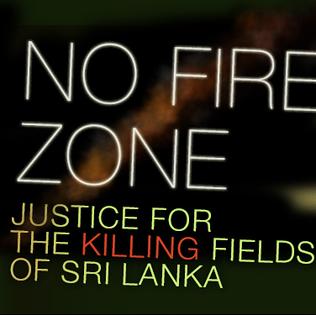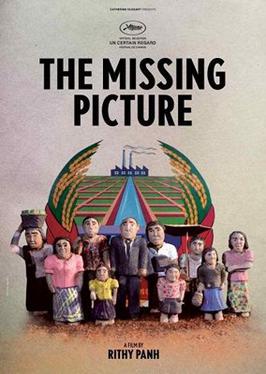
The National Film Board of Canada is Canada's public film and digital media producer and distributor. An agency of the Government of Canada, the NFB produces and distributes documentary films, animation, web documentaries, and alternative dramas. In total, the NFB has produced over 13,000 productions since its inception, which have won over 5,000 awards. The NFB reports to the Parliament of Canada through the Minister of Canadian Heritage. It has bilingual production programs and branches in English and French, including multicultural-related documentaries.

Seoul Train is a 2004 documentary film that deals with the dangerous journeys of North Korean defectors fleeing through or to China. These journeys are both dangerous and daring, since if caught, they face forced repatriation, torture, and possible execution.

Strength and Honour is a 2008 Irish sports drama film written, produced and directed by Mark Mahon. It was shot in Cork, Ireland. Filming took place in the city and county including Kinsale, Rochestown, Passage West and the un-opened maternity ward of the Cork University Hospital as well as the new airport.
Bengal Film Journalists' Association Awards commonly referred as BFJA Awards, is given by The Bengal Film Journalists' Association. The BFJA is the oldest association of film critics in India, founded in 1937 to serve the developing film journalism and film industry.

Atanu Ghosh is an Indian filmmaker. His Bengali film Mayurakshi (2017) was awarded the National Film Award for Best Feature Film in Bengali. His film Angshumaner Chhobi, Mayurakshi, Binisutoy, Abby Sen and Rupkatha Noy, bagged multiple Awards.He was born on 12 August 1969 in Kolkata, West Bengal. One of his Bengali movies named Mayurakshi was awarded as the Best Feature Film in Bengali. Atanu started his career as a scriptwriter and director for documentary films in 1996. For his work in Aar Ek Bampi, he received the Doordarshan National Awards for Best Children's Telefilm.

Andrea Kalin is an American independent filmmaker, writer, producer, and director. She is also the principal and founder of Spark Media and founder and executive director of Stone Soup Productions, a 501(c)(3) non-profit foundation.

Tannishtha Chatterjee is an Indian actress and director who is known for her work in several Hindi and English independent films. For her performance in the film Dekh Indian Circus, she won the National Film Award – Special Jury Award / Special Mention . In 2019 she directed her first feature film Roam Rome Mein which screened at Toronto International Film Festival. Chatterjee's performance in the German film Shadows of Time earned her critical acclaim. It took her to international film festivals, including the Toronto International Film Festival and the Berlin International Film Festival.
Irena Salina was born in Paris and acted in French theatre. She moved to New York City and studied at the Actors Studio. Her first short film, See You on Monday, screened at the Hamptons International Film Festival. She is the niece of actor Philippe Noiret.
Burning the Future: Coal in America is a 2008 documentary film produced and directed by David Novack. The film focuses on the impacts of mountaintop mining in the Appalachians, where mountain ridges are scraped away by heavy machinery to access coal seams below, a process that is cheaper and faster than traditional mining methods but is damaging to the environment. Some environmental problems discussed in the film include disfigured mountain ranges, extinct plant and animal species, toxic groundwater, and increased flooding. The film's run time is 89 minutes. In 2012, it was rereleased in a shorter, updated version, that was created for public broadcast on PBS. This new version of the film's run time is 56 minutes.

Chilean cinema refers to all films produced in Chile or made by Chileans. It had its origins at the start of the 20th century with the first Chilean film screening in 1902 and the first Chilean feature film appearing in 1910. The oldest surviving feature is El Húsar de la Muerte (1925), and the last silent film was Patrullas de Avanzada (1931). The Chilean film industry struggled in the late 1940s and in the 1950s, despite some box-office successes such as El Diamante de Maharajá. The 1960s saw the development of the "New Chilean Cinema", with films like Three Sad Tigers (1968), Jackal of Nahueltoro (1969) and Valparaíso mi amor (1969). After the 1973 military coup, film production was low, with many filmmakers working in exile. It increased after the end of the Pinochet regime in 1989, with occasional critical and/or popular successes such as Johnny cien pesos (1993), Historias de Fútbol (1997) and Gringuito (1998).
Arthur M. Jolly is an American playwright and screenwriter. In 2006, he was awarded an Academy of Motion Picture Arts and Sciences Nicholl Fellowship in Screenwriting for his comedy The Free Republic of Bobistan.
The Citra Award for Best Picture is an award given at the Indonesian Film Festival (FFI) to the best feature film of the year. The Citra Awards, described by Screen International as "Indonesia's equivalent to the Oscars", are the country's most prestigious film awards and are intended to recognize achievements in films as well as to draw public interest to the film industry.

Suman Ghosh is a film director, and a professor of economics at Florida Atlantic University.

Anwar Jamal is an Indian documentary filmmaker, based in New Delhi. He has been awarded the National Film Award on several occasions and had made critically acclaimed feature, short and documentary films a wide array of social, political and cultural themes. He has served as jury in many international film festivals including National Film Award Jury.

No Fire Zone: In the Killing Fields of Sri Lanka is an investigative documentary about the final weeks of the Sri Lankan Civil War. The documentary covers the period from September 2008 until the end of the war in 2009 in which thousands of Tamil people were killed by shelling and extrajudicial executions by the Sri Lankan Army including Balachandran Prabhakaran, the 12-year-old son of the slain Liberation Tigers of Tamil Eelam (LTTE) Chief Velupillai Prabhakaran. The Sri Lankan army has denied the allegations in the documentary. However, on 21 October 2015 the BBC reported that Maxwell Paranagama, a government-appointed Sri Lankan judge, says allegations the army committed war crimes during the long conflict with Tamil Tiger rebels are "credible". He went on to say there was evidence to suggest that footage obtained by the Channel 4 documentary No Fire Zone - showing prisoners naked, blindfolded, with arms tied and shot dead by soldiers - was genuine.

The Missing Picture is a 2013 Cambodian-French documentary film directed by Rithy Panh about the Khmer Rouge. It was screened in the Un Certain Regard section at the 2013 Cannes Film Festival where it won the top prize. It was also screened in the World Cinema section at the 2013 Cinemanila International Film Festival where it won the Grand Jury Prize. It won the Lumières Award for Best Documentary at the 21st Lumières Awards and was nominated for the César Award for Best Documentary Film at the 41st César Awards as well as for the Academy Award for Best Foreign Language Film at the 86th Academy Awards.
Signe Byrge Sørensen is a Danish film producer. She is the head of and co-founder of the film production company Final Cut for Real in Copenhagen, Denmark. Sørensen and film director Joshua Oppenheimer were nominated for an Academy Award for Best Documentary Feature for the 2013 film The Act of Killing. She was also the producer to the critically acclaimed documentary The Look of Silence. Signe Byrge Sørensen a member of The Academy of Motion Picture Arts and Sciences and the Danish Film Academy. In 2022, she produced the animated documentary film Flee and was nominated in Academy Award for Best Documentary Feature and Best Animated Feature categories.
Sandra Kogut is a filmmaker born 1965 in Rio de Janeiro, Brazil, whose works transition between documentary and narrative fiction. She first received international attention for her 1991 documentary Paralamas do Sucesso. Kogut has taught at renowned universities around the world and has worked for Brazilian and European broadcasters. Her debut feature film project was the multi award-winning Mutum in 2007. She is more recently known for Campo Grande (2015), which had its premiere in the Contemporary World Cinema section of the 2015 Toronto International Film Festival.

Flee is a 2021 adult animated documentary film directed by Jonas Poher Rasmussen. An international co-production with Denmark, France, Norway, and Sweden, it follows the story of a man under the alias Amin Nawabi, who shares his hidden past of fleeing his home country of Afghanistan to Denmark for the first time. Riz Ahmed and Nikolaj Coster-Waldau serve as executive producers and narrators for the English-language dub version.
Natalia Denegri producer and writer, residing in Miami, United States. She began her career as an actress and host in Argentina, where she participated in TV shows, plays and a radio program. In the United States, she has won 22 Emmy Awards.












